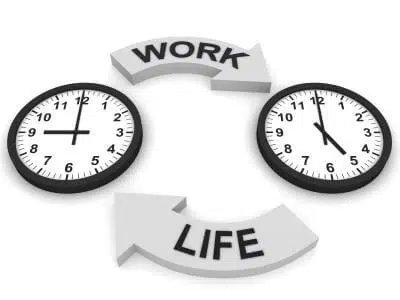
The Golden Rule is well known: “Do to others as you want others to do to you,” or, in John Stuart Mill’s concise version: “To do as you would be done by” (1). Its formulations vary and it is often quoted in isolation, without further context, although the context in which it is formulated can alter its meaning (2). A recent text by Steven Mintz, a business ethicist, expresses concern about the lack of reference to the Golden Rule in today’s world (3). After a brief account of his argument, we discuss the place of the concept of role in the application of the Golden Rule, understood in the general formulation we have mentioned: “Do to others as you want others to do to you.”
1.
“The Golden Rule is missing from today’s society”
That the Golden Rule may no longer be applied in today’s world is surprising considering that “this rule of conduct is part of the moral heritage of humanity;” that it is a “universal moral maxim;” “as old as humanity itself;” a principle which is found and has persisted in many religious and ethical traditions of humankind for thousands of years [and] should be the irrevocable, unconditional norm for all areas of life, for families and communities, for races, nations, and religions;” “a kind of natural law that pre-exists all philosophical and religious formulations developed over the centuries;” “the supreme maxim of morality, which the philosopher does not have to demonstrate but to reflect on and, if possible, to formalise;” or, again in the same spirit, the “Earth’s most important moral idea,” a “global standard – endorsed by nearly every religion and culture – important for families and professionals across the planet for many centuries – and a key part of a growing global-ethics movement,” although “many academics see [it] as vague and riddled with difficulties” (4).
“The Golden Rule is
a universal moral maxim”
In his short article, Steven Mintz takes the same perspective:
“How can anyone argue that the concept, “Do unto others as you would have them do unto you” is not an appropriate standard for ethical behavior?”
However, he comments on three of its misinterpretations and their consequences for the moral lessons that, given its supreme value, this rule should entail (5). He then adds a fourth, based on his experience as a teacher of business ethics. It is based on the maxim “Those with the gold make the rules:”
“During my years of teaching business ethics, I often heard some students express The Golden Rule this way: He who has the gold makes the rules. They come to that conclusion because they believe money drives behavior and it can lead someone with money to use it and make rules that harm others – all so that the decision-maker can benefit from their actions. It’s a challenge to teach students otherwise […].”
It may come as a surprise that such a maxim can be related to the Golden Rule. However, it is sometimes quoted while emphasising its cynical and caricatural character, alongside, for example, these other caricatures: “Do unto others as you hope they will not do unto you” or “Do unto others before they do unto you” (6). These parodies may seem irrelevant, but they are indirectly related to the Golden Rule. In particular, the maxim “Those with the gold make the rules” refers to the concept of rule, a concept that is involved in the interpretation of the Golden Rule and is relevant to its application in the professional world. We discuss this in the next section.
Mintz concludes his text on a pessimistic note:
“[The] Golden Rule is missing from today’s society where selfish behavior clouds its true meaning, kindness and empathy are a thing of the past, and individual’s do not look outward to define their behavior but inwards toward their personal desires.”
This conclusion refers both to the empathic dimension of the Golden Rule and to the capacity, which it implies, to take the place of the other. Among the concepts of the Golden Rule that Mintz mentions is role-taking, which he describes as “[putting oneself] in other’s shoes in order to know how to treat them ethically.”
These two complementary characteristics – empathy and role-taking – also have a social function. It is notable in this respect that the Golden Rule is often contrasted with selfishness. After stressing the importance of the Golden Rule, the Declaration Toward a Global Ethic of the Parliament of the World’s Religions, which we quoted at the beginning of this section, warns that:
“Every form of egoism should be rejected: All selfishness […]. We condemn these because they prevent humans from being authentically human. Self-determination and self-realization are thoroughly legitimate so long as they are not separated from human self-responsibility and global responsibility, that is, from responsibility for fellow humans and for the planet Earth.”
2.
Taking roles into account in the application of the Golden Rule
Role-taking refers of course to the concept of role. It is found, for example, in Immanuel Kant’s brief critique of the Golden Rule. In a note in his Groundwork of the Metaphysics of Morals, he stages the role of the judge:
“Let it not be thought that the trite quod tibi non vis fieri etc. [What you don’t want done to you, don’t do it to other] can serve as norm or principle here. [It] can be no universal law because […] it does not contain the ground of duties owed to others; for a criminal would argue on this ground against the judge punishing him, and so forth.” (8)
A spontaneous and literal application of the Golden Rule would lead the judge to the following reasoning: if I were a defendant, I would not like to be imprisoned; since I must do to others what I would like them to do to me, I decide not to imprison the defendant. But such reasoning ignores the context in which judges find themselves. Judges must respect the duties that are specific to their role and that have been defined by society. It is not possible to apply the Golden Rule without taking into account the context, i.e. in a bilateral relationship, as would be the case, for example, in the relationship between two friends (9).
“A literal application of the Golden Rule
can produce absurd results”
On the other hand, the Golden Rule asks us to imagine that we are in the other’s shoes. This is a necessary condition for communication to take place between interacting people. Brad Hooker, who offers a critical view of the Golden Rule as the highest principle of morality, points out that it can “remind us of moral prohibitions to which we were already committed” (this is the case if I am about to break a moral rule but imagine that I would feel a sense of injustice if others behaved in this way) and “can make more vivid to ourselves how others are affected by our actions” (10). But taking another’s place also involves imagining what it means to occupy it. And, unlike our friends or family members, this other may be unknown to us:
“We have to imagine ourselves changing roles not only with people sufficiently like us for us to have a real chance to be in their predicament someday, but also with beings so unlike us that we could never in fact be in their shoes. The Golden Rule requires us to think about being in other people’s positions – even when those are positions we know we’ll never occupy.”
Hooker’s argument tends to confuse the role with singular persons, for example those “beings so unlike us.” In particular, he ignores the complementary roles that characterise many social interactions, such as judge and defendant, mother and child, seller and buyer. Incidentally, Anne-Marie Rocheblave-Spenlé noted that complementary roles (e.g. mother and child) include by definition putting oneself in the place of the other:
“The learning of each role also includes […] that of the complementary role to which it is related. Consequently, the subject, while ‘acting’ in terms of a certain role in reality, possesses, in a latent state, that of his or her partner, and can therefore mentally put themselves in her or his place.” (11)
Nor does Hooker’s statement in this extract mention the fact that a role refers to certain social norms and involves social expectations (12). Taking the perspective of the other, when the other occupies a role, means that we refer to the social norms that the other should apply as the occupant of that role. Our expectations of the other include meeting these norms. In a negotiation, for example, there are common assumptions in the minds of the negotiators about the social norms that should be respected by both parties, such as mutual respect and the search for a fair balance.
3.
An interpretation of the Golden Rule based on shared norms
The shared norms argument has been defended by Marcus Singer (13). He responds, about a century later, to Richard Whately, who was, among other things, the Anglican Archbishop of Dublin (14). Whately showed the absurdity of the results produced by the Golden Rule, a scepticism that Singer shares if one adheres to a certain interpretation of the Golden Rule:
“That invaluable rule of our Lord’s, ‘To do to others as we would have them do to us,’ will serve to explain, when rightly understood, the true character of moral instruction. If you were to understand that precept as designed to convey to us the first notions of right and wrong, and to be your sole guide as to what you ought to do and to avoid in your dealings with your neighbor, you would be greatly perplexed.”
Singer takes up several of the examples proposed by Whately, including that of a landowner who wishes to rent his land to a farmer and wishes to apply the Golden Rule in setting the rent:
“If [the landowner] had let his land to a farmer, he might consider that the farmer would be glad to be excused paying any rent for it, since he would himself, if he were the farmer, prefer having the land rent-free; and that, therefore, the rule of doing as he would be done by requires him to give up all his property. So also a shop might, on the same principle, think that the rule required him to part with his goods under prime cost, or to give them away, and thus to ruin himself. Now such a procedure would be absurd.” (15)
The case of the landowner and the farmer allows Singer to explain how such an application of the Golden Rule is flawed. The “trap” is in Whately’s locution: “he himself would, if he were the farmer, prefer having the land rent-free.” It implies that the landlord somehow gives up his self, becomes the (imaginary) farmer and accepts his aberrant demand: to get free use of the land. This is not what the Golden Rule requires. It is not a matter of basing one’s action on the desires of others after taking on one’s role:
“[The golden rule] does not tell me that I must imagine myself to be another, or that I must imagine myself as constantly shifting back and forth from one role to another. The supposition ‘if I were he’ is not one from which any definite inferences can be drawn, because the supposition itself is so indeterminate.” (16)
The indeterminacy Singer refers to is the fact that the outcome of role-taking could vary between individuals: one landowner would feel that his duty is to offer free rent, another that, if he were the farmer, would feel it fair to pay market rent, etc. (17).
Things get more complicated if one proceeds to what Singer calls “circumvolutions,” i.e. a series of role-takings ad infinitum. The landowner could imagine what he would like a landowner to do to him if he were the farmer, and then imagine that, being the farmer, the farmer (an imaginary farmer) would imagine himself in the landowner’s place and wonder what the landowner would like him to do to him, ad infinitum. Unless an arbitrary stopping point is defined, the infinite series of role-taking would lead to no solution.
“A realistic application of the Golden Rule
is to refer to legitimate norms”
Another problem arises from the situation the landowner would be in if he had to resolve a dispute between, for example, two farmers using his land and having opposing claims (18). If he were to put himself in the shoes of the first farmer, and then in the shoes of the second, the result would be conflicting options that would reflect these conflicting claims.
To resolve such difficulties, Singer introduces the idea, discussed in Section 2, that the protagonists, in applying the Golden Rule, should refer to the norms that govern their relationship. In the case of the landowner and the farmer, the Golden Rule “requires [the landowner] to act towards [the farmer] on the same standard or principle that he would have [the farmer] apply in his treatment of him” (19).
This interpretation avoids the problem of regression to infinity posed by circumlocutions. It also avoids the case in which the landowner would have to arbitrate between two conflicting claims, since all three parties (the landowner and the two farmers) would refer to norms such as impartiality and the existence of evidence. Finally, it allows a multiplicity of persons in a given situation to apply the Golden Rule, since the question it raises is to seek the relevant norms to govern this situation.
Singer’s interpretation has been criticised, but it has the advantage of escaping a narrow view of the Golden Rule, since it mobilises moral norms that are recognised as valid and that unite the interacting persons.
Alain Anquetil
(1) J. S. Mill, Utilitarianism, 1863, Collected Works of John Stuart Mill, J. M. Robson (ed.), 33 volumes, CW X. There is also a negative version of the Golden Rule: “Do not do to others what you do not want others to do to you,” which appears to be less demanding than the positive version and whose moral meaning is generally considered to be more substantial (see however Robert E. Allinson, “The Confucian golden rule: A negative formulation,” Journal of Chinese Philosophy, 12, 1985, pp. 305-315).
(2) With regard to the mentions of the Golden Rule in the Gospels, we note these substantially different formulations embedded in a specific context: “So in everything, do to others what you would have them do to you, for this sums up the Law and the Prophets” (Matthew, 7:12) and “Do to others as you would have them do to you” (Luke, 6:31, where it is said, five verses later: “Love your enemies, do good to those who hate you”).
Jeffrey Wattles notes that, “for example, to point to ‘the golden rule in Confucianism’ by quoting a fifteen-word sentence from the Analects of Confucius does not convey the historical dynamism of the rule’s evolving social, ethical, and spiritual connotations. What do the words mean in their original context? How prominent is the rule within that particular tradition? Finally, how does the rule function in a given interaction between the speaker or writer and the listener or reader? The rule may function as an authoritative reproach, a pious rehearsal of tradition, a specimen for analytic dissection, or a confession of personal commitment. Is the rule one or many? Can we even properly speak of the golden rule at all?” Wattles cites the example of the interpretation of the Golden Rule in Hinduism, Islam and Christianity, and concludes by observing that “countless people think of the rule without any religious associations at all.” (J. Wattles, The Golden Rule, Oxford University Press, 1996.)
(3) S. Mintz, “Redefining the Golden Rule,” Ethics Sage, 15 September 2021.
(4) The references are respectively: “Règle d’or,” the French Dictionnaire Biblique Westphal; Olivier du Roy, La règle d’or: histoire d’une maxime morale universelle. Vol. 1: De Confucius à la fin du XIXème siècle, vol. 2 : Le XXème siècle et essai d’interprétation, Paris, Les Éditions du Cerf, 2012; Alberto Frigo, review of Olivier du Roy’s La règle d’or…, Revue de l’histoire des religions, 3, 2014; Declaration Toward a Global Ethic, the Parliament of the World’s Religions, 4 September 1993; Frédéric Lenoir, Petit traité de vie intérieure, Paris, Pocket, 2012; Paul Ricœur, “Entre philosophie et théologie : la Règle d’Or en question,” Revue d’histoire et de philosophie religieuses, 69(1), 1989, pp. 3-9; and Harry J. Gensler, Ethics and the Golden Rule, Routledge, 2013.
(5) He is inspired by M. W. Merrill, « 3 Ways you are teaching the Golden Rule wrong ».
(6) N. E. Bowie & M. E. Schneider, Business Ethics for Dummies, Hoboken, Wiley Publishing, 2011. In an article published in 1968, Albert Carr noted that the rules of the business game include a meta rule that requires the abandonment of some of the ethical criteria of general morality, including the Golden Rule, because “a good part of the time the businessman is trying to do unto others as he hopes others will not do unto him” (A. Z. Carr, “Is bluffing ethical?” Harvard Business Review, 46(1), 1968, pp. 143-153; see A. Anquetil (in French), Qu’est-ce que l’éthique des affaires ? Paris, Vrin, 2008).
(7) Declaration Toward a Global Ethic, op. cit.
(8) I. Kant, Groundwork of the Metaphysics of Morals, translated and edited by M. Gregor, Cambridge University Press, 1997.
There are many other arguments against the Golden Rule. One is that it can be applied to bad actions. For instance, Henry Sidgwick noted that “this formula is obviously unprecise in statement; for one might wish for another’s cooperation in sin, and be willing to reciprocate it.” It is better to substitute the maxim of benevolence: “Each one is morally bound to regard the good of any other individual as much as his own, except in so far as he judges it to be less, when impartially viewed, or less certainly knowable or attainable by him” (H. Sidgwick, The methods of ethics, 1907, Hackett Publishing Company, 1981).
(9) I refer here to Aristotle: “The question was once put to him, how we ought to behave to our friends; and the answer he gave was, ‘As we should wish our friends to behave to us’” (Diogenes Laërtius, Lives and opinions of eminent philosophers, translated by C. D. Yonge, G. Bell and Sons, 1915.
(10) B. Hooker, “The Golden Rule,” Think, 4(10), 2005, pp. 25-29. I put the italics.
(11) A.-M. Rocheblave-Spenlé, La notion de rôle en psychologie sociale: étude historico-critique, Paris, Presses Universitaires de France, 1962.
(12) He refers to this almost at the beginning of his article, where he talks about the “position” and “rules” involved in social interaction: “The Golden Rule tells me to do unto others as I would have them do unto me if they were in my shoes (position) and I were in theirs. I should avoid acting on rules to which I might latter object if and when someone follows them in dealing with me.” (Op. cit.)
(13) M. G. Singer, “The Golden Rule,” Philosophy, 38(146), 1963, pp. 293-314. (14) R. Whately, Lessons on morals and Christian evidences, Cambridge, John Bartlett, 1856. His Lesson IV is about the golden rule.
(15) Ibid.
(16) M. G. Singer, op. cit.
(17) For various reasons: the imagined farmer would not like to give the impression to those around him or to his peers that he was taking advantage of the situation, he would feel that his honour would be at stake, he would not like to feel indebted because of a zero rent, etc.
(18) I draw on an example from Whately that Singer comments on at the end of his article. Whately assumes that a judge has to arbitrate between two parties.
(19) M. G. Singer, op. cit.




